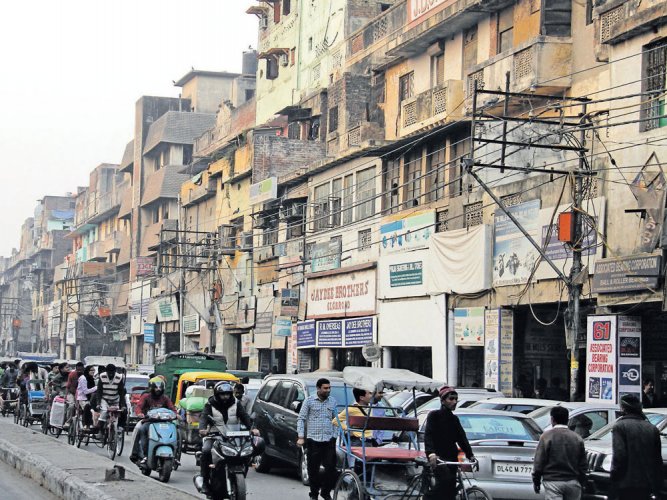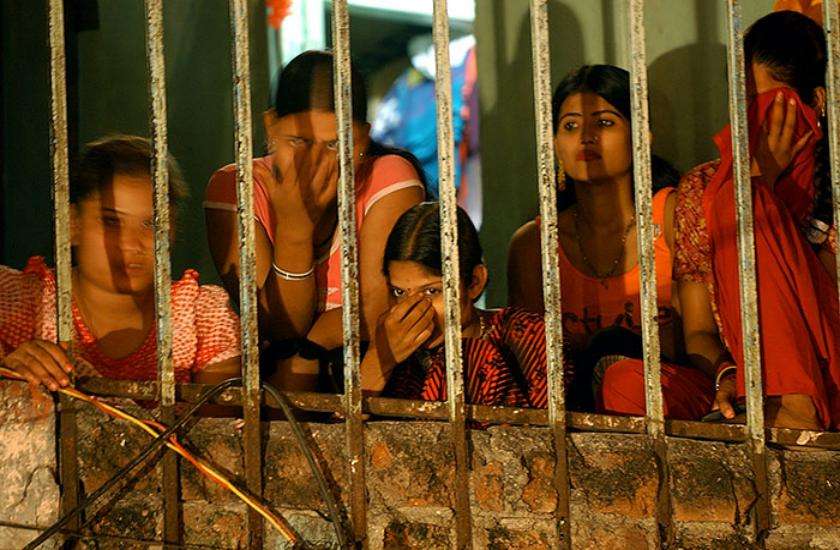The Indian government’s decision to impose a countrywide lockdown was considered to be a strategic move to curb and contain the spread of the coronavirus pandemic but the lockdown surely has brought about some big challenges and concerns, especially for the sections of the population that live on the margins. One group that has been most severely affected by the lockdown and has been faced with massive financial difficulty is the one composed of India’s sex workers.
Today, amidst the lockdown thousands of Indian sex workers are fighting to survive as they have been faced with an immediate loss of clientele and resultant financial insecurities.
These sex workers have nowhere to go and have no alternative source of income to sustain themselves in the lockdown. They faced an overnight loss of income and this has pushed them further into depression and survival anxiety.
India has a population of over 1.3 billion people and the announcement of an initial three-week lockdown brought about immense chaos, loss of livelihood and left lakhs of people without an opportunity to arrange for alternative modes of sustenance. One of the worst hit sections of the population has been that which is composed of sex workers and in its report the Global Network of Sex Workers and UNAIDS has released a statement that highlights the hardships and discrimination being faced by sex workers in such times and it has urged governments across the world to ensure that the human rights of these sex workers are not compromised in these times. The statement reads, “Whenever and wherever possible. Sex workers are responsibly self isolating in response to government’s calls. However, when they are excluded from COVID-19 social protection responses, sex workers are faced with putting their safety, their health and their lives at risk just to survive…”
Sex Workers:More Marginalised Than Ever Before
Sex workers are already amongst the most vulnerable groups in the population and the lockdown has pushed them further into the perils of helplessness and marginalisation.
There is nothing for them at the moment and the government needs to proactively do something in their interest.
Sex workers have nowhere to go and have no alternative source of income to sustain themselves in the lockdown. They faced an overnight loss of income and this has pushed them further into depression and survival anxiety.
Sex work in India is governed by the Immoral Traffic Prevention Act, 1956 and is considered an illegal act. India doesn’t have the official number of sex workers working in different parts of the country but it does have a rough estimate of 1.5 million-3 million.
Activists however suggest that these numbers are not adequate and that in reality there are many more sex workers.
On an average a sex worker earns anything between Rs 100-800 per client. The core clientele of sex workers comprises of migrant workers, truck drivers and other men who are away from their families. This is also a group which is very badly hit by the lockdown and the subsequent loss of livelihood. Grappling with the horrific impact of the lockdown, sex workers who are themselves daily wage earners are today without any business.
The financial stress caused because of the lockdown has made survival uncertain for these women as they don’t know when their usual clientele shall return.
Most urban centres in India do have designated areas where a majority of sex workers live and offer their services. In Delhi’s GB Road area for example there are about 78 brothels and 2,225 resident sex workers.

Civil society organisations working with sex workers and their children suggest that even after the lockdown, more than 1,200 sex workers are still living in brothels in the region while many have had to look for alternative accommodations or have had to flee back home due to their inability to pay the brothel rent.
Social and Physical Distancing are Luxuries for Sex Workers
While the government keeps on emphasising the need for maintaining social and physical distance in order to save oneself from the spread of coronavirus, the question is whether this is feasible for the women living in the brothels? Most of these brothels are located in heavily populated, congested localities where these women are forced to share a room with 15-20 other roommates. The financial stress caused because of the lockdown has made survival uncertain for these women as they don’t know when their usual clientele shall return. They have no liquid cash coming their way and they hardly have any savings, survival anxieties are looming large over their heads.
With the inability to pay brothel rents many of them may soon have no shelter over their heads. These sex workers are often accommodated in a brothel with either the arrangement of paying a certain amount per customer to the owner or by paying a monthly rent for living at the brothel. Both these possibilities have become challenging for sex workers amid the lockdown.
In cities like Kolkata, the government has appealed to brothel owners to relax rent for the sex workers for a minimum of three months because given their conditions, there is no way that they will be able to pay the rent.
Sex workers are nowhere in the imagination of those who design public policy and with the lockdown, their survival is impossible.
Brothels are congested, dimly lit, have poor sanitation and multiple women often share a small space in squalor.
Social distancing is impossible. How does one follow the protocol of physical distancing and hygiene when 60 people have to share a bathroom and there is often no water for days? The plight of sex workers is tragic, but what about the lives of trans sex workers? When will society acknowledge that they too are human beings and deserve to live life with dignity?
Access to healthcare is another important challenge and many sex workers have high prevalence of HIV and tuberculosis, they often have hardships in accessing even the basic healthcare facilities due to the stigma that society has attached to their profession.
In the times of lockdown, India’s sex workers are faced with a multitude of challenges ranging from financial anxieties, healthcare difficulties and inabilities to access social welfare measures undertaken for the poor and marginalised. Social stigma and indignity have pushed them to the perils of marginalisation and poverty, will the daughters of the brothel ever see the light of the day?
Sameena Moitra is The New Leam contributing writer – based in Darjeeling.














